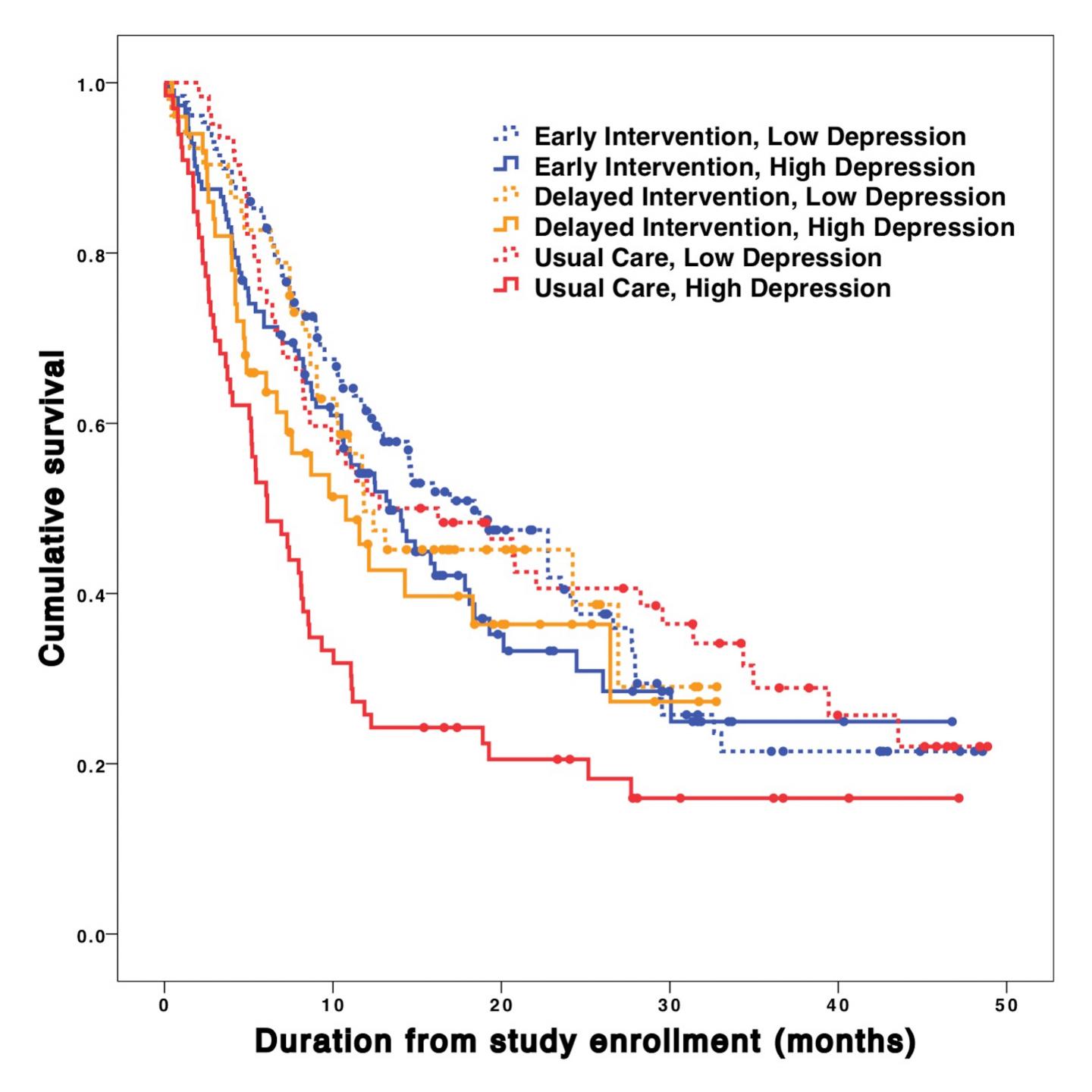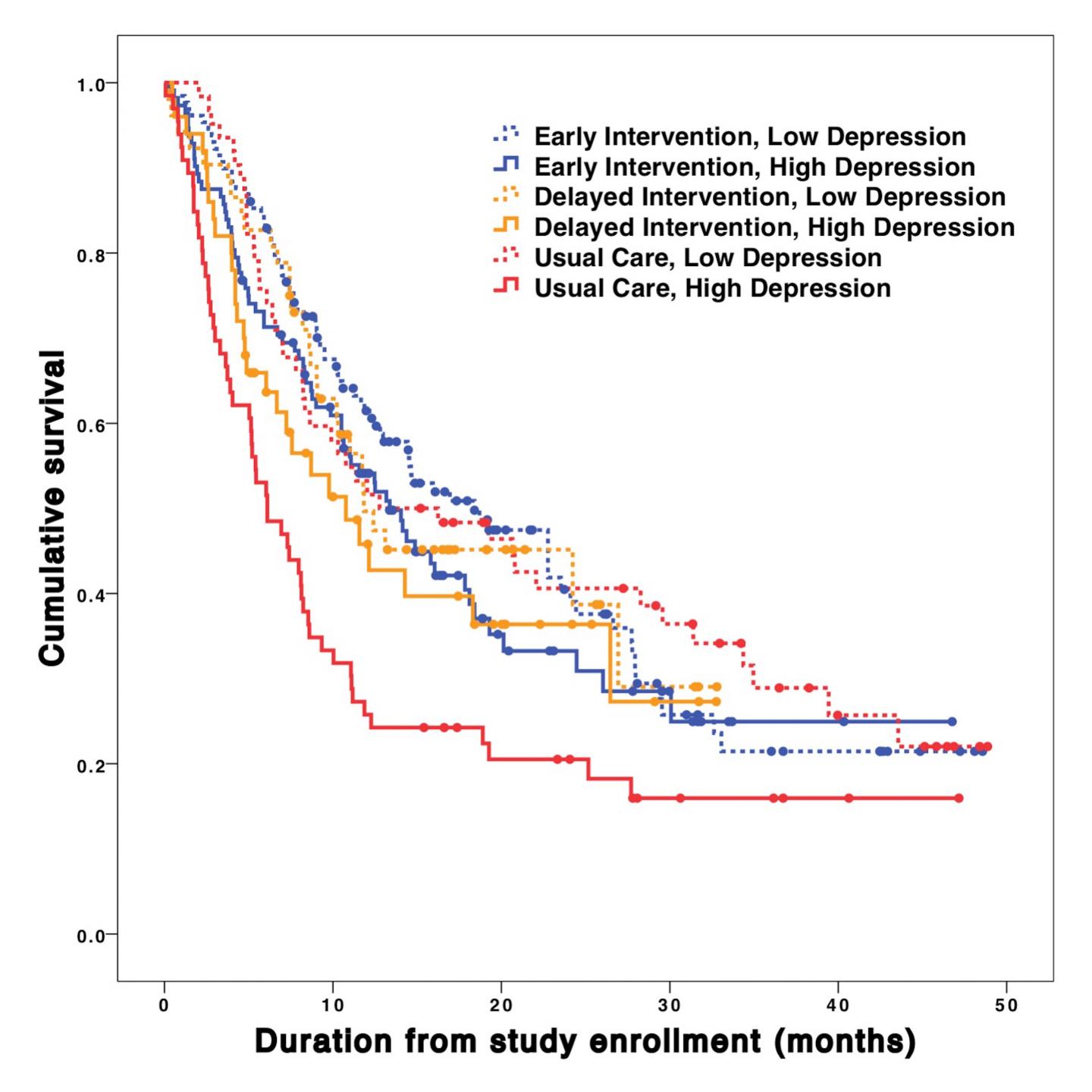
Credit: Figure by Anna T. Prescott.
A new Dartmouth-led study finds that patients with depression and advanced cancer live longer when exposed to palliative care interventions designed to improve quality of life.
Published in Health Psychology as an online first publication, the findings provide new insight on the relationship between depression and survival. (A pdf of the study is available upon request).
The study draws on data from two randomized controlled trials with advanced cancer patients using ENABLE (Educate, Nurture, Advise, Before Life Ends), a palliative care intervention designed to improve quality of life among patients diagnosed with cancer. The intervention consisted of an in-person palliative care consultation followed by six weekly structured phone coaching sessions with an advanced practice nurse specializing in palliative care. Calls then continued monthly until the patient died or the study ended. Topics covered as part of the intervention included coping strategies, symptom management and advanced care planning. The researchers compared the effect that early intervention, delayed intervention or no palliative care intervention (i.e. usual care) had on the survival rates as a function of the patient's initial level of depression.
In general, higher levels of depression at the beginning of the study were associated with shorter survival. This was especially true for those higher in depression in the usual care group (none of whom received the palliative care intervention). In contrast, the survival rate for those higher in depression who experienced the palliative care intervention – either the early or delayed intervention – improved significantly to the point that they were similar in survival to those with low levels of depression. The benefits of the palliative care intervention held true when demographics, the cancer site and the severity of the illness were considered.
"Although the effect of the palliative care intervention on survival is clear, the mechanism behind it is not. One possibility is that those who are depressed are less attentive to their health, illustrating how traditional care may be insufficient to help patients overcome this deficit. Yet, a tailored intervention may succeed by motivating health-promoting behaviors, which may enable patients to live longer," said co-lead author Jay G. Hull, the Dartmouth Professor of Psychological and Brain Sciences, and associate dean of faculty for the social sciences.
"Although our findings should not be taken as evidence that depression causes shorter survival, symptoms of depression could be used as a marker to help doctors identify patients who are at elevated risk for poor outcomes and who could benefit from a palliative care intervention like the one studied in this work," explained co-lead author, Anna T. Prescott, a senior evaluation and research analyst in career and education outreach at the Vermont Student Assistance Corporation, who was a Dartmouth graduate student in psychological and brain sciences at the time of the study.
"Palliative care is still a relatively new specialty that has still not been fully incorporated into clinical practice, so studies like ENABLE provide important insights into the contributions that this multi-disciplinary specialty care can make to patients, family members and the health systems that adopt this care model," said senior author, Marie Bakitas, the Marie L. O'Koren Endowed Chair, and associate director of the Center for Palliative and Supportive Care at the University of Alabama at Birmingham (UAB), who co-led the ENABLE studies while at Dartmouth and continues to apply this methodology in her work.
###
Hull is available to comment on the study at: [email protected].
Media Contact
Amy D. Olson
[email protected]
603-646-3274
@dartmouth
http://www.dartmouth.edu





